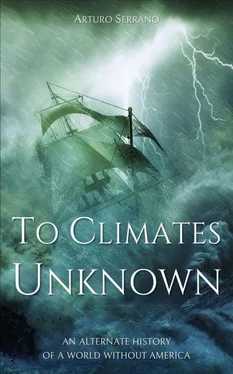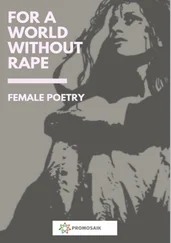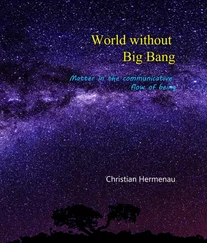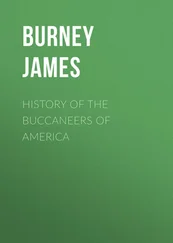Poor William jumped repeatedly to try to see what had just happened, but the waving arms and clapping hands were getting in the way. He jumped again, more strongly, avid for a face, a word, a gesture to recount, a shred of proof that he had lived that day, or any piece of story to embellish afterwards; he jumped once more, not wishing to return to his acquaintances without at least a private fact that no one else had noticed, some elusive, insignificant detail he could repeat and brag about for years; he jumped despite the little space he occupied; he jumped, not caring that he bothered those who stood beside him on the bridge; he jumped again, with more intensity this time, as if it was his only opportunity to do a thing of consequence in all his days; and after one additional attempt his weight and that of dozens of onlookers broke the bridge. The water splashed ridiculously; bodies fell on bodies, crushing faces, twisting limbs, while William, at the bottom of the river, strived beneath the human pile to hold his breath, exerting arms and legs in breaking free, but people had begun to fight each other fruitlessly, and in the same inevitable way that motion follows motion, someone stepped on someone else, an ankle slipped, a shoulder struck a jaw, and William hit his head against the river floor and knew no more.
It was chaos. People who had just embarrassed themselves in the way most guaranteed to never be forgotten were clumsily helping one another climb out to the pier, but it was impossible to maneuver the farthingales, the aiguillettes, the perukes, the supportasses, the peascod bellies, the shoe roses, the gable hoods; their attempts to help their muddied Highnesses only threw them back into the creek. From the deck of the Golden Hind , all matters of state hopelessly forgotten for the rest of the day, the newly knighted Francis Drake watched in mute astonishment the absurdity of the whole affair, and his eyes were drawn to the rippling surface of the water and the blurry image of a London turned upside down, which the courtiers’ frantic movements distorted into meaninglessness, only for the mirror image to redraw itself as the ripples spread.
Noon, September 11 (Julian), 1620
Open sea
Follow those ripples: out of Deptford Creek and down the Thames they go, bouncing against the edges of the river, multiplying as they flow out of London and extend into the sea, squeeze their way through the English Channel and expand in every direction; some crash against the shores of Tripoli and bounce back to colder waters; others are caught in the great currents that circle the world and reach the Far East; others visit hidden beaches in Brazil and splash with the foam up in the air. In their course they meet with one another and give birth to more of their own. Time keeps moving; consequences build up. The unremarkable turns essential and the overlooked is now world-shattering. Follow those ripples, from the death of William Adams and across the centuries until the dawn of the Fifth Age of Fire. That is as far as we can see from where we stand.
This we know: on April 4, 1581, our William did not survive the accident that tainted the otherwise momentous coming of age of a seafaring nation. He did not live to finish, in 1588, his apprenticeship, and gain command of his own vessel; he did not get married that same year. He did not transport supplies to the English warships facing the Spanish assault, and did not later join the merchants of the Barbary Company to carry goods across the deadly route between London and Morocco. He did not spend ten years successfully evading the pirates who might have found good use for a spacious trade ship; let us take it for certain that the less skilled hands of another pilot would not have prevented catastrophe. Thus, on June 24, 1598, our William did not tire of the merchant’s life and sail from Holland on an expedition to the Spice Islands; he did not, after two disastrous years of hunger and misery, become the first Englishman to see Japan. He did not bring to the Shōgun the crucial news that there had been a Reformation; he did not cause him to question his patience with the Jesuits. He did not plead in vain, for the rest of his life, to be allowed to leave for England; he did not die, in desperate exile, on May 16, 1620.
He was, instead, no one.
Now even the years he missed have passed. The currents of consequence are in position. Let them run a little further, just a few more months, until the crisscrossing of ripples settles into the shape of the future.
It is now. It is the Year of Our Lord 1620. It is the Year of the Hijra 1029. It is the sixth year of the reign of Mizunoo II, the eighteenth year of the reign of James I, the thirty-second year of the reign of Christian IV. It is the last year of the reign of Wanli and the first year of the reign of Taichang. It is the Year of the Iron Monkey.
Today, a ship is passing through the North Atlantic on a westward route. A child is bored of looking at the waves, his head supported by a pair of weary hands, his elbows pressed against the gunwale, and his feelings torn between nostalgia, fear, and disillusionment. He never wanted to be here. As much as he would like to understand the why of so much trouble, what he knows, or rather hears his parents say in trembling prayers, is that they are risking everything for graver matters than their life or death; that he, like every other child on board, is Dutch by birth, an Englander by blood, and homeless on account of creed. He travels with a hundred passengers who see themselves as pilgrims headed for the promised land, but only he will have the opportunity to walk on it. Not this year, and not with these companions. His name is Samuel Fuller, and the faith of his parents is going to fail him.
Across the ocean, if his eyes could see that far, he would find a peer. On another ship, finally returning home, a man is scared of truth: he has seen half the world and met the man who owns it. For too many years, he has tried to build a bridge from Japan to Spain, but each side has caused regrettable offenses against the other. He has pled and begged, he has prayed and done penance, but the pride of kings, once wounded, is slow to heal, and that of popes never does. Now he sails back home to deliver a warning that will not be heard. His name is Hasekura Tsunenaga, and his legacy will haunt him.
Far from there, as though no stronger than a fallen ghost, a man is tired of months of lengthy toil. His terribly disgraceful errors killed his crew with cold and scurvy, killing also all the chances he might yet have had of getting home with glory to restore his family’s name and station. Now he navigates a desperate vessel, famished and frostbitten, but in better spirits than a year ago. His name is Jens Eriksen Munk, and although he won’t make it back, he’s anything but finished.
Let us now proceed to the warmer coasts of the great Algiers, where a man has dared to oppose the navies of three empires with a trade ship snatched from the less skilled hands of another pilot. His name, one time, was Ivan de Veenboer, but nowadays he goes by Sulayman, and for his crimes he has very narrowly escaped capture, only to soon inflict it upon innocents.
Today, the ripples that began their journey when our William died are large enough to shake the world. History took a different direction since the moment the plank broke, but what direction has not yet been made evident. The accumulation of consequences is on the verge of reaching visible size. Today, September 11, four ships carry the weight of the world in them, and none will reach its destination.
Do not drag the gods into your accounts of phenomena: leave them happily free from work.
Epicurus,
Letter to Pythocles
When in Samothrace, Diagoras was asked how a believer in divine indifference could deny the many pieces of art commemorating those who with divine help had survived the perils of the sea. He replied that none commemorated those who perished.
Читать дальше












